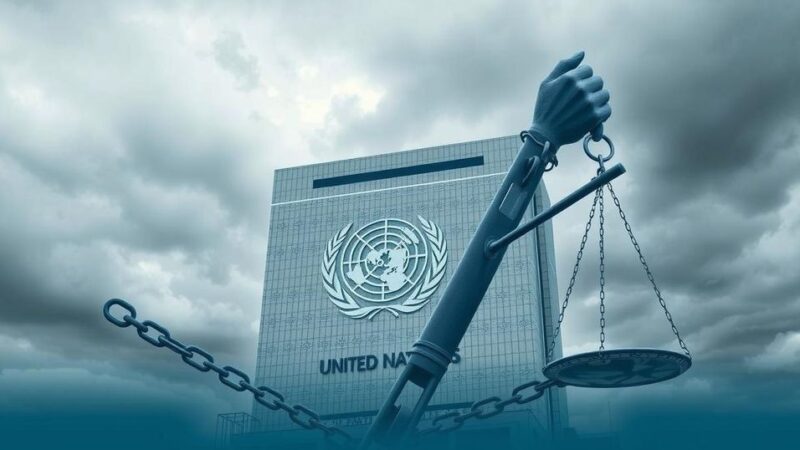Kuwait has released a group of American prisoners including military contractors jailed for drug offenses, considered a gesture of goodwill. This move follows U.S. efforts to bring home citizens detained abroad and involves advocacy from hostage consultant Jonathan Franks. The relationship between the U.S. and Kuwait remains strong despite historical charges against American contractors.
On Wednesday, Kuwait released several American prisoners, including military contractors and veterans, who were incarcerated due to drug-related offenses. This release is interpreted as a goodwill gesture between Kuwait and the United States. The action follows a recent visit by Adam Boehler, a U.S. hostages envoy, and aligns with ongoing efforts by the U.S. to secure the freedom of American citizens imprisoned abroad.
Among those freed, six individuals were escorted by Jonathan Franks, a consultant specializing in hostage and detainee cases. Franks communicated the gratitude of his clients toward the Kuwaiti government for their humanitarian decision. He also mentioned that many of his clients continue to proclaim their innocence and additional releases are anticipated.
While the identities of the released individuals have yet to be disclosed, the State Department has not provided immediate commentary. The diplomatic relationship between Kuwait and the U.S. has been emphasized recently by Secretary of State Marco Rubio, who reaffirmed support for Kuwait’s sovereignty.
Kuwait maintains a strong military alliance with the United States, dating back to the Gulf War in 1991. However, the country has also faced criticism for detaining numerous American contractors on drug allegations, where some have reported mistreatment during their imprisonment.
The U.S. State Department warns travelers that drug offenses in Kuwait can result in lengthy imprisonment or even the death penalty. Notably, while military personnel may be protected by American laws, contractors do not share the same legal safeguards.
Under the Trump administration, there have been successful negotiations for the release of Americans from foreign prisons, including a recent swap involving a schoolteacher and citizens held in Belarus. While the freed Americans were not classified as wrongfully detained by the U.S. government, advocates express hope for a more lenient approach to secure freedom for others.
Franks remarked on the difficulties faced by Americans imprisoned abroad, attributing their prolonged detainment to ineffective policies previous to the Trump administration. He emphasized that these releases signal what can be accomplished when American interests are prioritized in diplomatic endeavors.
In summary, Kuwait’s recent release of American detainees illustrates a potential thawing of relations and goodwill between the two nations. The actions taken by the U.S. government and the efforts of individuals like Jonathan Franks highlight ongoing diplomatic efforts to secure the freedom of Americans held abroad. While the complexities of international law regarding contractors remain, this release sets a hopeful precedent for future negotiations. Continued advocacy and a flexible approach from U.S. officials may lead to further successful outcomes in similar cases.
Original Source: www.clickondetroit.com




